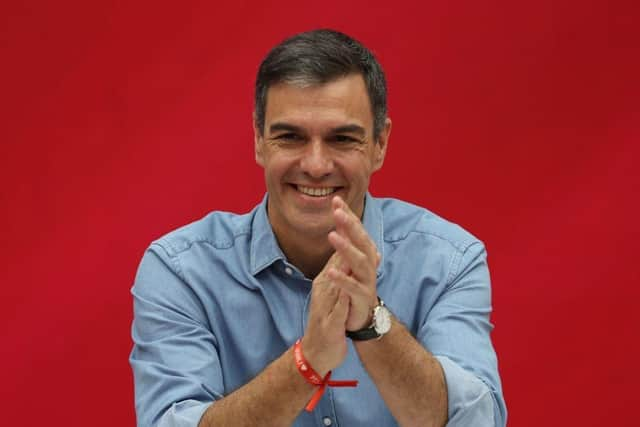Analysis: What now for Spain after topsy turvy election result?
When Alberto Núñez Feijóo, leader of the conservative People’s Party (PP), addressed the public following Sunday’s Spanish general election, even he sounded disappointed and concerned – something which would not generally be expected from the party which won the most votes.
“Spaniards know we have gone from being the second force to the party with the most votes,” he said, adding: “I hope this doesn't start a period of uncertainty in Spain.”
Advertisement
Hide AdAdvertisement
Hide AdIt already has, following an election result which was the polar opposite of what observers expected to happen.


Neither of the two main parties – PP and the Spanish Socialist Workers party (PSOE) – won enough votes to form a majority. Moreover, an expected surge in popularity of the far right Vox party – as seen in some other governments across Europe, such as Italy, where prime minister, Giorgia Meloni was voted in last year – did not materialise either, crushing PP hopes of a conservative coalition. Instead, Vox lost 19 seats and saw its share of the vote cut from its standing following the 2019 election.
PSOE leader and prime minister Pedro Sánchez had called the vote following disappointing local elections in May. Commentators had expected him to face resounding losses and for PP to triumph, however, that did not happen, although the centre-right party did take more votes than any other party, at 136, compared to PSOE’s 122. Vox won 33.
Mr Sánchez, again in a statement that would be surprising from the losing party in any other election than this one, was delighted at the result, which left him 14 seats behind PP.
“The reactionary bloc of regression, which set out a complete reversal of all the advances that we've achieved over the past four years, has failed," he told supporters.
Now, for the next three months or even longer, the country will be in a state of flux.
On 17 August, Congress will reconvene and the leaders of the two main parties will present their attempts to put together a government.
King Felipe VI will then meet leaders to determine which candidate is likely to receive political backing to become prime minister. If Mr Feijóo believes he cannot, the king could turn to Mr Sánchez.
Advertisement
Hide AdAdvertisement
Hide AdA vote will then take place which requires one leader to win an absolute majority of 176 votes. If that does not happen, a second vote will be held two days later. That requires a basic majority. If again, that fails, MPs can take two months to appoint a new prime minister. If that does not – or cannot – happen, parliament will be dissolved and new elections called for the end of the year.
The latter seems the most likely outcome at the moment.
Mr Feijóo is expected to ask Mr Sánchez in the coming days to form a "solo government with specific agreements”, something which Mr Sánchez is likely to reject.
For Mr Sánchez to form a government, he would, alongside far-left allies Sumar, need the support of hardline, pro-independence party Together for Catalonia (Junts). But that party has previously said it would not team up with Mr Sánchez.
Stalemate.
Comments
Want to join the conversation? Please or to comment on this article.
